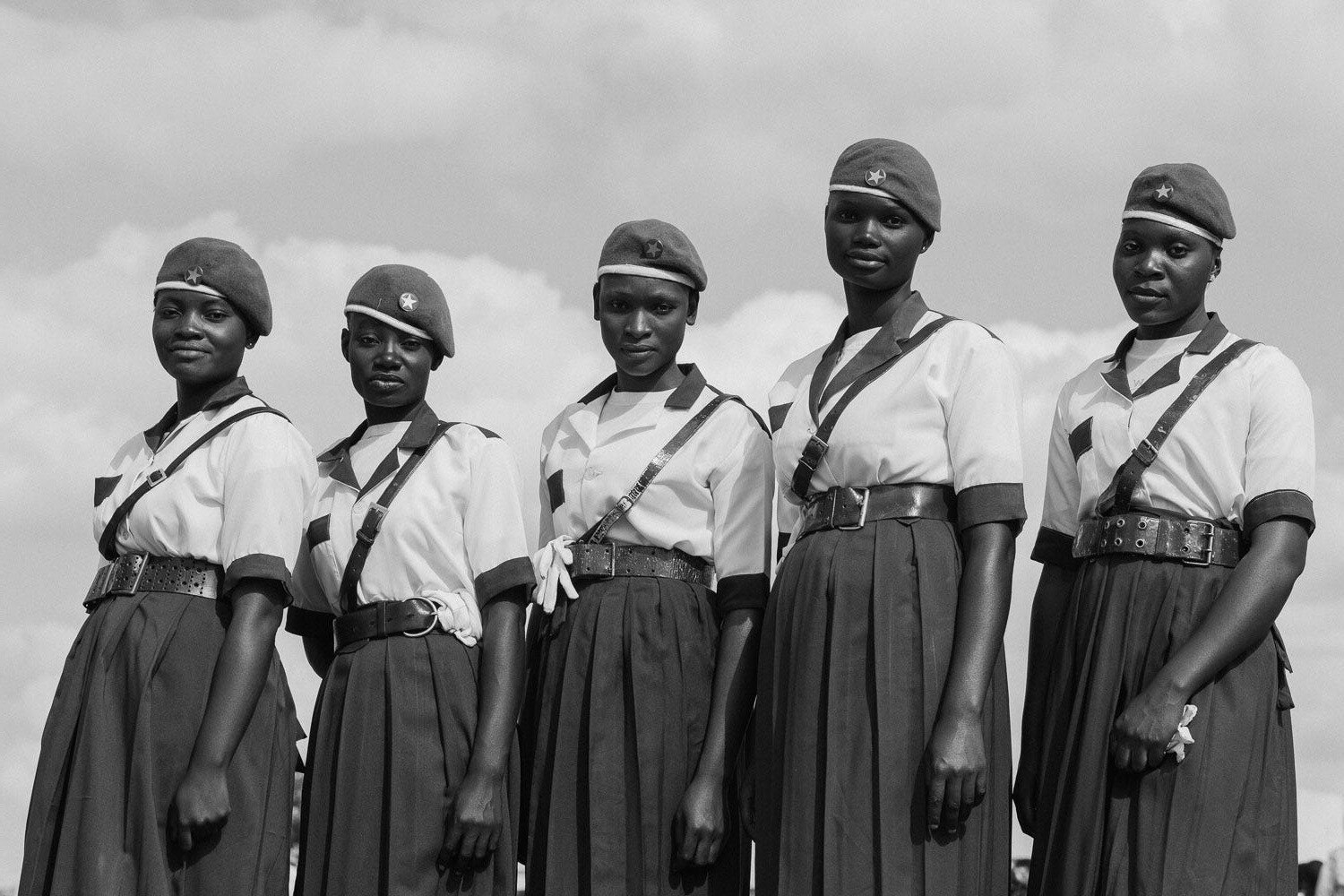
Kimbanguism is a fascinating religious movement that originated in the Democratic Republic of Congo. Founded by Simon Kimbangu in 1921, this faith blends elements of Christianity with traditional African beliefs. Kimbanguists believe in the Holy Trinity, but with a unique twist: they see Simon Kimbangu as the Holy Spirit incarnate. This movement has grown significantly, boasting millions of followers worldwide. Its teachings emphasize peace, unity, and spiritual healing. Unlike many other Christian denominations, Kimbanguism places a strong focus on African identity and culture. Curious about this intriguing faith? Here are 27 facts that will give you a deeper understanding of Kimbanguism.
What is Kimbanguism?
Kimbanguism is a Christian religious movement that originated in the Democratic Republic of Congo. Founded by Simon Kimbangu in 1921, it has grown into a significant faith with millions of followers. Here are some fascinating facts about Kimbanguism.
-
Founded by Simon Kimbangu: Simon Kimbangu, a Congolese religious leader, started Kimbanguism in 1921. He claimed to have received divine visions and performed miracles.
-
African Independent Church: Kimbanguism is one of the largest African Independent Churches. It emphasizes African identity and independence from European colonial influence.
-
Headquarters in Nkamba: The spiritual headquarters of Kimbanguism is located in Nkamba, a village in the Democratic Republic of Congo. Followers consider it a holy city.
-
Belief in One God: Kimbanguists believe in one God, who they call Nzambi a Mpungu. They see God as the creator of the universe.
-
Trinity Concept: The faith includes a unique interpretation of the Trinity, seeing Simon Kimbangu as the Holy Spirit, his son Joseph Diangienda as the Son, and God the Father as Nzambi a Mpungu.
Key Beliefs and Practices
Kimbanguism has distinct beliefs and practices that set it apart from other Christian denominations. These beliefs are deeply rooted in African culture and spirituality.
-
No Alcohol or Tobacco: Followers abstain from alcohol and tobacco, believing these substances corrupt the body and spirit.
-
Vegetarian Diet: Many Kimbanguists follow a vegetarian diet, emphasizing purity and health.
-
Worship Services: Services include singing, dancing, and drumming, reflecting African cultural traditions.
-
Healing Practices: Healing through prayer and laying on of hands is a significant aspect of Kimbanguist worship.
-
Prophecy and Visions: Prophecy and visions play a crucial role, with followers believing that God communicates directly with them.
Historical Impact
Kimbanguism has had a profound impact on the history and culture of the Democratic Republic of Congo and beyond.
-
Colonial Resistance: The movement was seen as a form of resistance against Belgian colonial rule. Simon Kimbangu was imprisoned for his activities.
-
Imprisonment of Simon Kimbangu: Simon Kimbangu was sentenced to life imprisonment by Belgian authorities and spent 30 years in prison until his death in 1951.
-
Growth Despite Persecution: Despite persecution, Kimbanguism continued to grow, attracting followers across Africa.
-
Recognition by the State: In 1959, the Belgian government officially recognized Kimbanguism as a religion.
-
Influence on African Nationalism: The movement inspired African nationalism and the push for independence from colonial powers.
Modern-Day Kimbanguism
Today, Kimbanguism continues to thrive, adapting to modern times while maintaining its core beliefs and practices.
-
Millions of Followers: There are an estimated 5 million Kimbanguists worldwide, primarily in Africa.
-
Global Presence: Kimbanguist communities exist in Europe, the Americas, and Asia, reflecting its global reach.
-
Annual Pilgrimages: Followers make annual pilgrimages to Nkamba, the holy city, to celebrate important religious events.
-
Educational Institutions: The church runs schools and universities, promoting education and literacy among its followers.
-
Healthcare Services: Kimbanguist hospitals and clinics provide healthcare services to communities in need.
Cultural Contributions
Kimbanguism has made significant contributions to African culture, particularly in music and the arts.
-
Kimbanguist Music: The church has a rich musical tradition, with choirs and orchestras performing religious and traditional African music.
-
Art and Sculpture: Kimbanguist art and sculpture often depict religious themes and African cultural motifs.
-
Literature and Publications: The church publishes religious texts, newsletters, and books to spread its teachings.
-
Cultural Festivals: Kimbanguist festivals celebrate African heritage and religious milestones, featuring music, dance, and traditional attire.
-
Language Preservation: The movement promotes the use of African languages in worship and daily life, preserving linguistic heritage.
Social and Political Influence
Kimbanguism has played a role in shaping social and political landscapes in Africa.
-
Advocacy for Social Justice: The church advocates for social justice, equality, and human rights, reflecting its roots in anti-colonial resistance.
-
Political Engagement: Kimbanguist leaders often engage in political discourse, promoting peace and development in their communities.
Final Thoughts on Kimbanguism
Kimbanguism, a fascinating blend of Christianity and African traditions, has a rich history and cultural significance. Founded by Simon Kimbangu in 1921, it has grown to millions of followers, primarily in the Democratic Republic of Congo. This movement emphasizes spiritual healing, social justice, and self-reliance. Its unique practices, like the use of sacred music and distinctive worship styles, set it apart from other religious movements.
Understanding Kimbanguism offers insight into the resilience and creativity of African spirituality. It’s a testament to how faith can inspire community and identity. Whether you're a history buff, a religious studies enthusiast, or just curious, Kimbanguism provides a compelling look at the intersection of faith and culture. Dive deeper into its teachings, and you might find new perspectives on spirituality and human connection.
Was this page helpful?
Our commitment to delivering trustworthy and engaging content is at the heart of what we do. Each fact on our site is contributed by real users like you, bringing a wealth of diverse insights and information. To ensure the highest standards of accuracy and reliability, our dedicated editors meticulously review each submission. This process guarantees that the facts we share are not only fascinating but also credible. Trust in our commitment to quality and authenticity as you explore and learn with us.


